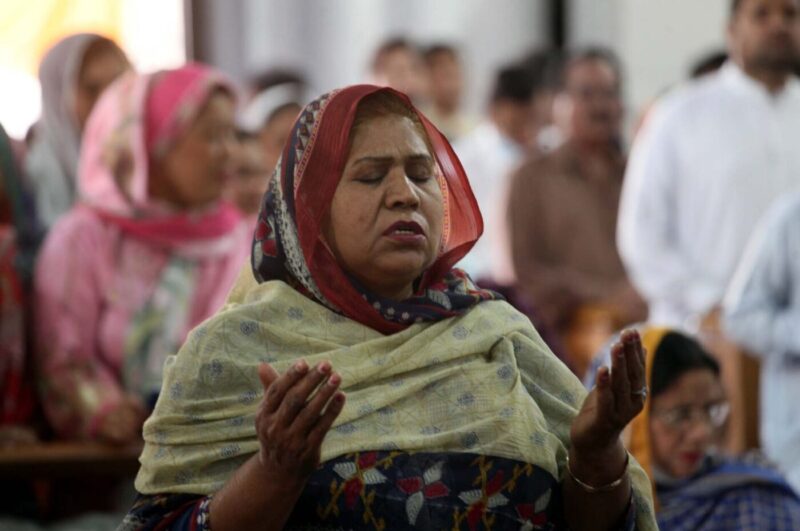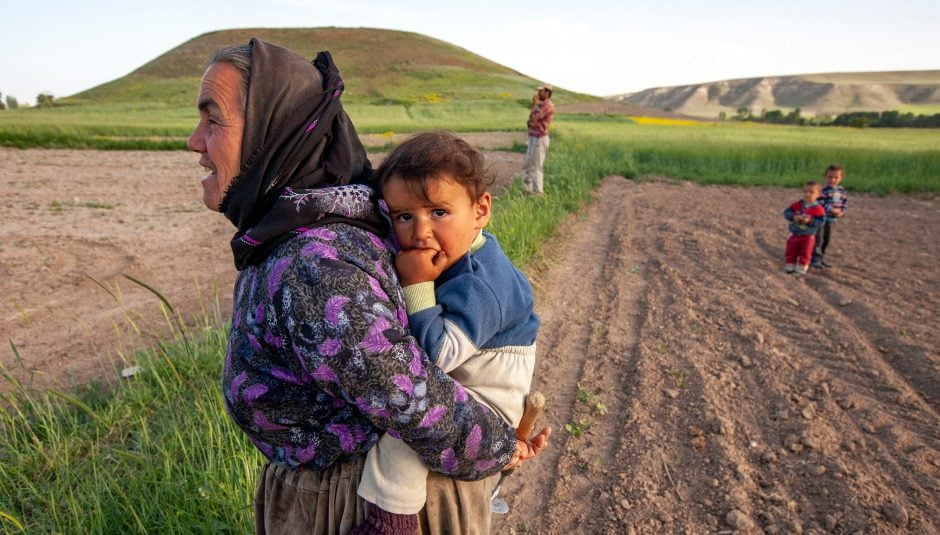There are many reasons behind the persecution of Christianity today.. Sometimes, religion may be tied to ethnic or cultural identity.
In other places, governments that thrive on power view Jesus as competition and those who follow Him as threats to their control.
Still, other areas put such a high value on their majority religion. In such instances, any other faith is seen as something to be rooted out and violently oppressed.
Here are some of the main reasons Christians are targeted for following Jesus:
1. Authoritarian governments who view Christianity as a threat to power
In some countries, Christian persecution takes place under authoritarian governments. In places like North Korea or Eritrea, authoritarian governments seek to control all religious thought and expression. Their actions are part of a comprehensive plan to tightly oversee all aspects of political and everyday life.
These governments regard some religious groups as enemies of the state because they hold religious beliefs that may challenge loyalty to the rulers.
2. Suspicion of anything outside the majority cultural faith
In some places, there is great hostility toward nontraditional and minority religious groups. They are viewed as foreign or non-native to the culture. For example, in Niger, more than 98% of the population is Muslim. Thus, hostility comes more from society than from the government.
In India, Hindu nationalists claim that to be Indian is to be Hindu. As a result, non-Hindus—religious minorities like Christians and Muslims—are targeted for abuse.
In these places, to be a Christian is to claim an identity other than the one claimed by the dominant culture, and that is often powerfully opposed.
3. Extremist groups who want to destroy Christians
In some areas of the world, there are radicalized extremist groups. Such groups wage war against anyone who doesn’t adhere to their specific interpretation of religion.
For instance, in places like the Middle East and Nigeria, Islamic extremist groups terrorize communities and churches. They have been observed killing those they consider to be “infidels” (often in coordinated bombings), raping and kidnapping women, and burning down homes and churches. Their victims can be fellow adherents of a religion, such as Boko Haram attacks on Muslims in Nigeria. Regardless, they always target Christians out of hatred for other faiths.
4. Official and cultural domination of a single religion
Around the world, there are many places that have official laws instilled to tightly control or even discourage Christians from openly practicing their faith. These laws are in the name of service to a dominant religion.
In places like the Maldives or Saudi Arabia, Islam is such a dominant religion that trying to worship Jesus openly can be unheard of—especially outside of the prescribed (and restrictive) settings.
In places like Pakistan, the laws are guided by Islamic law. In such cases, if a Christian is accused of “blasphemy,” they can be sentenced to death.
Christians in Iran are only allowed to worship in churches that don’t speak the language of everyday Iranians. And in places like Malaysia, there are restrictive rules about conversion from Islam for certain ethnic groups.
5. Religious freedom is a disrespected human right
Freedom of religion, like all freedoms of thought and expression, is inherent. Our beliefs help define who we are. They serve as a foundation for what we contribute to our societies.
However, today, many people live under governments that abuse or restrict freedom of religion. Christians in such areas face persecution, suffer deeply, and are denied basic freedoms.
For instance, in Eritrea, there are violations of the freedom of expression, assembly, and religious belief and movement. This is in addition to extrajudicial killings, enforced disappearances, extended detention, torture, and indefinite national service. The lack of basic human rights leads many Eritreans to flee the country.
Freedom from persecution is a Human Right
In 1948, the United Nations General Assembly adopted the Universal Declaration of Human Rights. This declaration came as a result of the treatment of the Jews in Nazi Germany. The document states that every person is entitled to basic human rights. This reaffirmed the dignity and worth of all human beings regardless of a person’s race, color, sex, language, religion, political or other opinions, national or social origin, property, birth, or other status.
In 1966, the United Nations developed the International Covenant of Civil and Political Rights (ICCPR) in addition to the Universal Declaration of Human Rights. Article 18 of the ICCPR focuses on four elements of religious freedom:
- Everyone shall have the right to freedom of thought, conscience, and religion. This right shall include freedom to have or to adopt a religion or belief of his choice, and freedom, either individually or in community with others, and in public or private, to manifest his religion or belief in worship, observance, practice, and teaching.
- No one shall be subject to coercion, which would impair his freedom to have or to adopt a religion or belief of his choice.
- Freedom to manifest one’s religion or beliefs may be subject only to such limitations as are prescribed by law and are necessary to protect public safety, order, health, or morals or the fundamental rights and freedoms of others.
- The States Parties to the present Covenant undertake to have respect for the liberty of parents and when applicable, legal guardians to ensure the religious and moral education of their children in conformity with their own convictions.
When countries restrict religious freedom—including the free expression of Christianity and free worship of Jesus—they are rejecting this vital human right, which is built into the conscience of every human being and has been validated time and time again throughout history.




